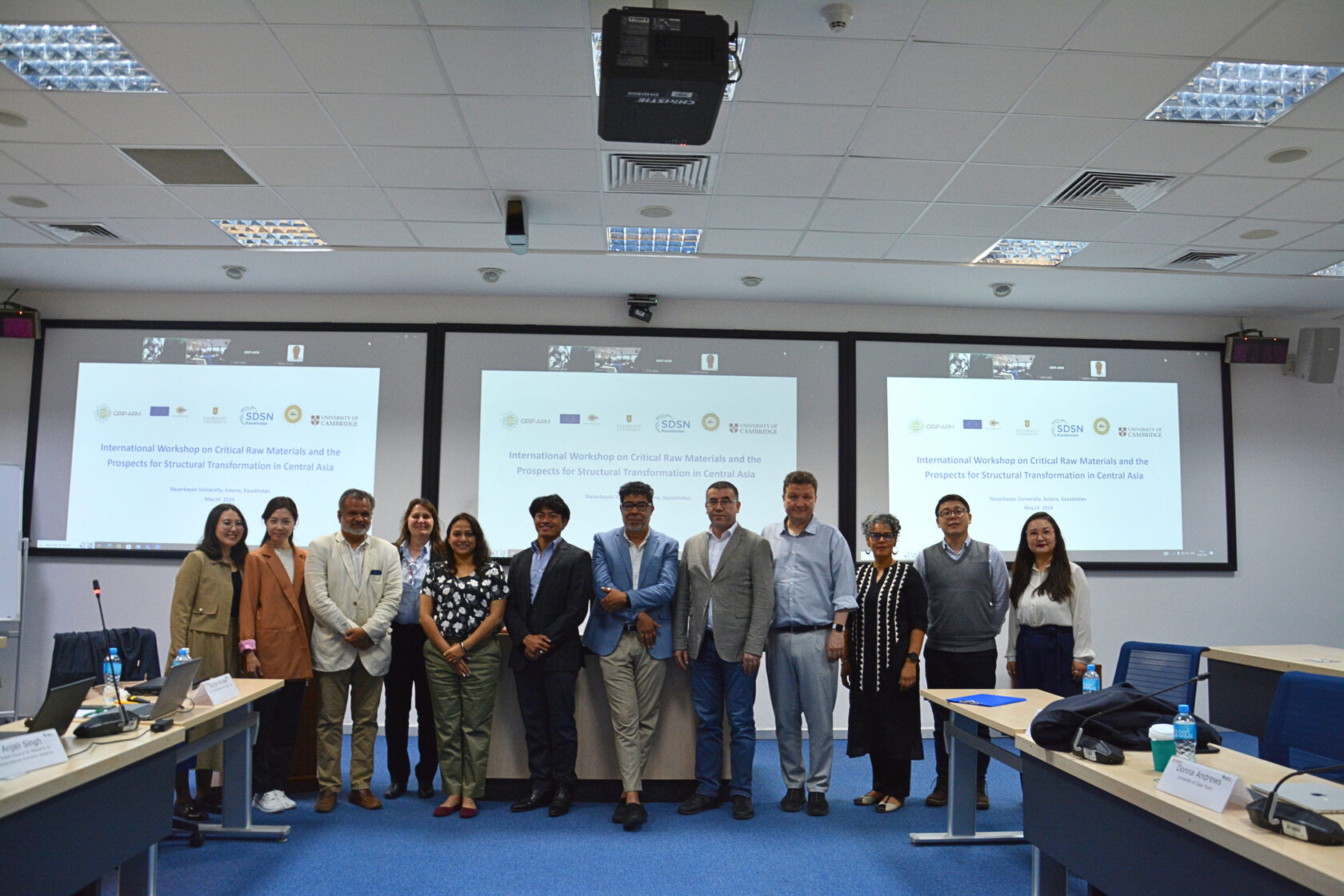This workshop was organized by the ERC Starting Grant research programme Green Industrial Policy in the Age of Rare Metals (GRIP-ARM), in collaboration with Kazakhstan Science Fund JSC, Nazarbayev University, SDSN Kazakhstan, and DSIT UK grant to Cavendish Laboratory and Cambridge Central Asia Forum, University of Cambridge, which was a significant gathering of minds and expertise in the realm of geopolitical analysis and regional development.

The acceleration of technological competition among major powers and the worldwide trend towards decarbonization created new pressures—and opportunities—for mineral producers. As advanced technologies like artificial intelligence, quantum technology, and new energy systems shaped modern economic life, new patterns of international trade, investment, and finance were consequential in the restructuring of supply chains of both critical raw materials (CRMs) and manufacturing. At the same time, the growing distance between the U.S. and China altered the logic of supply chain management—one whereby economic security took primacy over principles of on-time production and supply chain interdependence. Some explored the move towards deglobalization. Nevertheless, geopolitical risks stressed the significance of securing access to critical minerals. In this context, new mineral producers were drawn to their resources sector to respond to the growing demand from decarbonization and technological competition. For example, the EU’s "Critical Raw Materials Act" issued on March 16, 2023, sought to create a diversified supply chain of minerals, away from China, by way of expanding EU trade relations with third countries. Kazakhstan, which possesses 16 of the 54 CRMs on the list, was included in the major countries with a special trade deal.
The workshop delved into the complex interplay of geopolitical dynamics, technological advancement, and structural transformation in Central Asia, particularly in the context of the accelerating global competition for critical raw materials (CRMs) and the imperative of decarbonization. As Central Asia emerges as a key player in global supply chains and manufacturing, understanding the nuances of its evolving role becomes paramount.
All participants, including Jewellord T. Nem Singh, Serik Orazgaliyev, and Siddharth Saxena, brought to the table a wealth of expertise spanning diverse fields such as political economy, public policy, materials science, and regional studies. Their insights, coupled with the contributions of scholars and practitioners from various disciplines, promise to enrich the discussions and shape the discourse on Central Asia’s trajectory in the global arena.
The workshop delved into the complex interplay of geopolitical dynamics, technological advancement, and structural transformation in Central Asia, particularly in the context of the accelerating global competition for critical raw materials (CRMs) and the imperative of decarbonization. As Central Asia emerges as a key player in global supply chains and manufacturing, understanding the nuances of its evolving role becomes paramount.
All participants, including Jewellord T. Nem Singh, Serik Orazgaliyev, and Siddharth Saxena, brought to the table a wealth of expertise spanning diverse fields such as political economy, public policy, materials science, and regional studies. Their insights, coupled with the contributions of scholars and practitioners from various disciplines, promise to enrich the discussions and shape the discourse on Central Asia’s trajectory in the global arena.